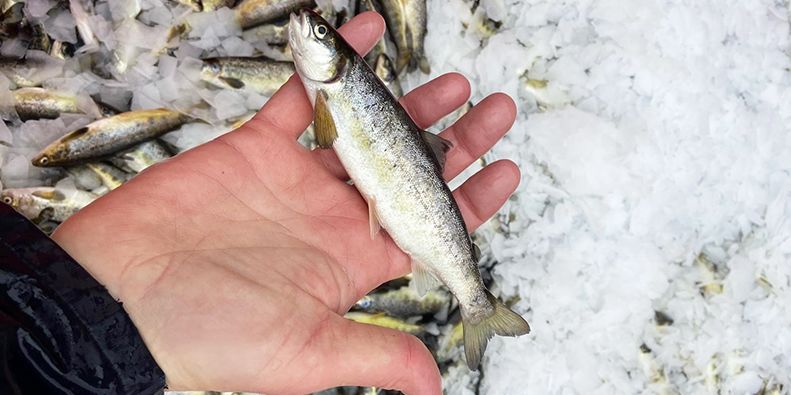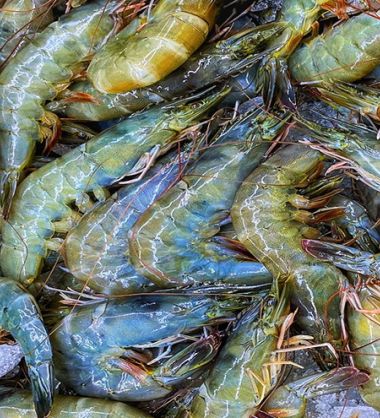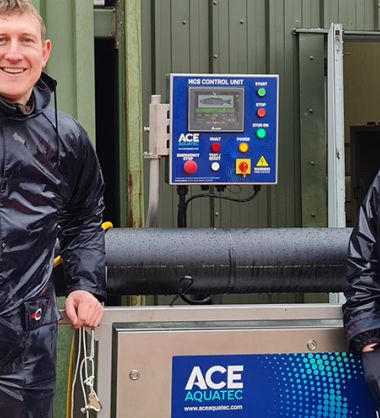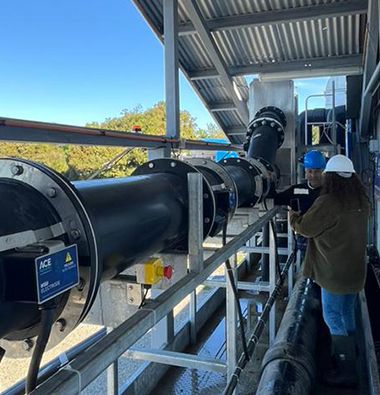Every fish counts in Ace Aquatec’s collaboration with Tiny Fish
01 August 2024

An award-winning collaboration between Ace Aquatec and start-up Tiny Fish has attracted interest across the Scottish salmon farming sector. The initiative, which won the Best Collaboration prize in the recent Aquaculture Awards, is setting new industry standards in animal welfare, and is closely aligned with Ace Aquatec’s commitment to sustainability.
Tiny Fish’s mission is to make every fish count by humanely harvesting smaller, unviable fish so they can be processed and distributed as high-value products, minimising waste and enhancing the circular economy.
During the freshwater stage of production, salmon not meeting size standards are typically removed using chemical anaesthesia and must then be disposed of in landfill, ensiled, incinerated, or repurposed into compost or bioenergy.
Tiny Fish has found a means of optimising these fish using Ace Aquatec’s Humane Culling System (A-HCS®), a compact adaptation of the Humane Stunner Universal, tailored for small-scale operations.
By removing the need for chemicals, the system provides a more ethical way of dispatching excess fish at hatchery facilities, as well as producing an omega rich protein that can be harnessed for new revenue streams.
The system has a 100 per cent stun rate and can process three tonnes of fish per hour more humanely and efficiently than any other method.
Tiny Fish collects, packages, freezes and stores the fish, providing an opportuntiy to utilise them as premium foods in new markets, including pet food suppliers, zoos, aquariums and angling bait.
This year, Tiny Fish has already saved small fish – ranging from 5g to 80g - from landfill, said Tiny Fish pioneer Teresa Garzon.
‘The collaboration offers low financial commitment, high efficacy regarding welfare at slaughter, and reduced waste.
‘Everything harvested finds a market, so no fish are wasted, and there is scope in future to create new markets for these little fish, for example, as smoked or canned products for human consumption.
‘More importantly, though, are the environmental and welfare impacts of the initiative. Salmon farmers, who have a duty of care for their fish, can now harvest them more humanely while driving sustainability throughout the sector as a whole.’
Customers have described the initiative as a ‘game changer’, with Mowi installing one Humane Culling System at its Inchmore hatchery and now looking at adding a second system.
Atlantic salmon parr from Mowi which would have gone to landfill is being used Marine Nutrition, an aquarium feed supplier.
Dan Philips, Freshwater Director at Mowi, said: ‘Farmers want to see every one of their fish sold as food. This collaboration between Ace Aquatec and Tiny Fish is a no-brainer to reduce food waste across our freshwater production. The technology is easy to operate and is helping us reduce our carbon footprint by converting the fish into a natural, healthy and safe ingredient for pet food products and fish oils.’
Scottish Sea Farms has also implemented the system at its Barcaldine hatchery and Ace Aquatec is aiming to get permanent A-HCS® systems deployed at more RAS freshwater production sites in Scotland, Ireland and Norway.
These would be paired with mobile units to help smaller production facilities improve welfare standards and lower their carbon footprint. In 2025, production hubs in Chile, Iceland and Japan will be targeted.
Tiny Fish’s focus is currently on the freshwater Atlantic salmon and trout sector as these offer viable tonnage of high-quality fish for their discerning customers, but other sectors are also being considered.
With big names in Scottish salmon farming coming on board since January, the hope is that the whole sector will get behind the Tiny Fish initiative, working together on distribution channels.
‘We are at the start of a journey,’ said Tara McGregor-Woodhams, Chief Sales and Marketing Officer at Ace Aquatec. ‘This partnership has created a real opportunity for Scottish producers to show the global aquaculture sector that putting welfare and zero food waste at the heart of processing is easy to achieve and the right thing to do.’


